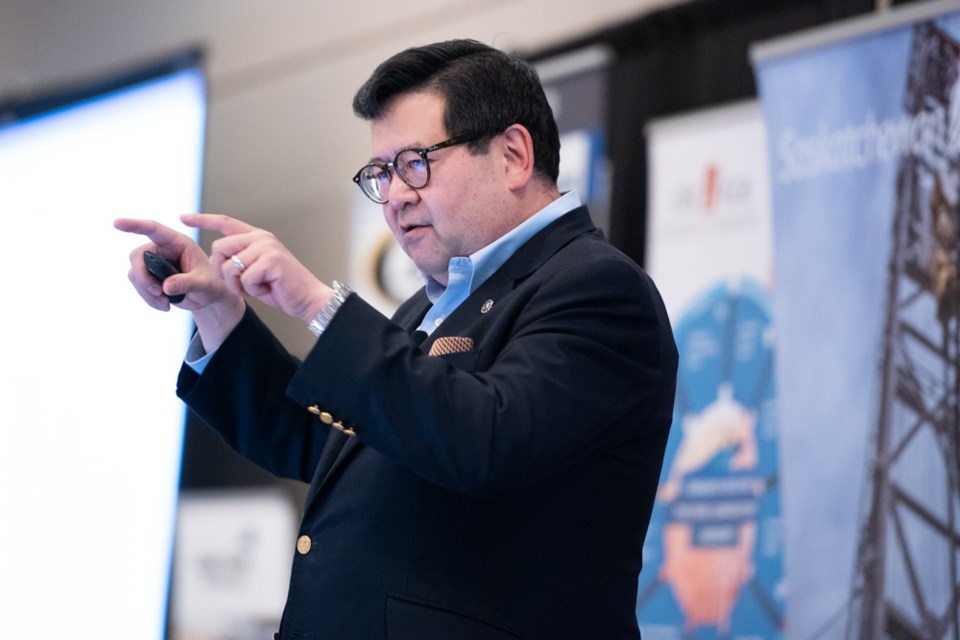Regina – Gary Mar, president and CEO of the Petroleum Services, says infrastructure is the key issue for the oilpatch in this upcoming federal election. He spoke to Pipeline News at the SIMSA Oil and Gas Supply Chain Forum in Regina on Oct. 3.
“I think the core issue is the ability to get infrastructure completed in this country. It appears this is a challenging policy issue for the current federal government. And it does not appear that they are in any hurry to get anything done. That, to me, is a core issue for the oil and gas business,” Mar said.
“We need pipelines. We need pipelines that can carry oil to tidewater. We need pipelines that can carry natural gas to foreign markets. We’re talking about infrastructure that will allow for the building of LNG (liquified natural gas) facilities. We’re talking about moving natural gas to a place like Saguenay, Quebec. In Quebec they have a project there called Energie Saguenay, which would be a $15 billion project that would take natural gas from Western Canada in a 36 inch pipeline, liquefy it, and take it to foreign markets, out of Quebec.”
He said Quebec’s premier has talked about his support for the project, as well as the province’s energy minister. “They are very of Western Canadian natural gas going out through Saguenay, Quebec.”
But not oil?
“Not yet,” Mar said.
Asked about the recently-proposed Canadian Prosperity Pipeline, which would be a new pipe from Hardisty, Alta, to Saint John, N.B., Mar said, “From my perspective, this is very positive. You’ve got a premier in New Brunswick, Premier Higgs, who has talked about his support for an Energy East-type of project. And the need for it has been highlighted by recent events in Saudi Arabia. About 10 per cent of the world’s oil comes from Saudi Arabia, and 5.7 per cent of that was damaged in a recent drone attack.
“It highlights the need for supporting the concept that Canadians should be buying Canadian energy.”
As for why the price of oil, two weeks after the attack, was still US$52 per barrel for West Texas Intermediate, Mar said the U.S. Strategic Petroleum Reserve was able to absorb the impact.
“Their ability to recover from that event was pretty immediate.”
With regards to the United States becoming technically energy independent essentially now, he said, “Here’s the remarkable thing: we sell oil to the United States and we buy it back in a finished product form. So I would ask, how many orange groves ship oranges to Detroit to have it changed into orange juice for Michigan? The answer is zero. They make orange juice in Florida. So why is it that Canadians seem to be satisfied with selling oil to the United States, only to buy it back in a finished product form. It doesn’t make any sense at all. And that’s why infrastructure is so important to the Canadian Economy, because Canada, also, should be able to be moving finished products, particularly to places other than the United States. Ninety-nine per cent of our oil goes to one marketplace, the United States, which is why we get paid a discount. At the same time that we are exporting 3.7 million barrels a day, we are importing about 700,000 barrels a day, and we pay full price!
“What country in the world would set its infrastructure in such a way that you would be compelled to sell at a discount, and buy at full price?” Mar asked.
He expects a Donald Trump-led United States will continue to want to buy cheap Canadian oil, refine it on the Gulf Coast, and ship it out to other countries. “He will be a net exporter of Canadian oil that he buys cheap, and sells at full price.”



